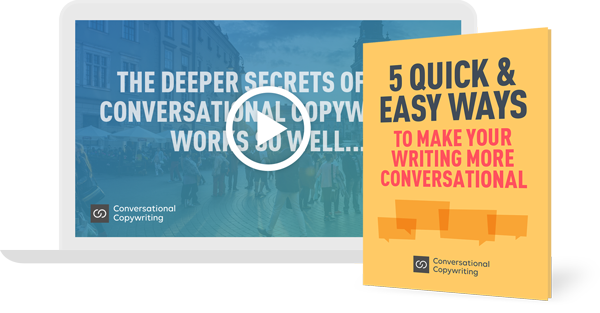
What do I mean by a “high-trust, relationship-based business”?
Here are a few examples…
You’re a life coach or business coach, consultant, freelancer, speaker, trainer, naturopath, yoga or fitness instructor, interior decorator or tree surgeon… and so on.
If your work brings you into direct contact with your customers and clients, consider yourself included.
Consider yourself excluded if you sell coffee mugs, shampoo, bicycles and most of the other stuff in and around your home.
There’s a key difference here.
If someone is just buying “stuff”, they need to believe in the stuff, not the seller. They just need to feel confident that your shampoo will clean their hair.
But when people buy a service, that’s a whole different thing.
Now they need to believe in you, the seller.
In other words, if you sell a high-trust, relationship-based service, your customers need to feel they can believe in you and trust you.
How this impacts the way you sell your services…
When you’re selling physical stuff, you can go a little overboard with your promotions.
Use some crazy marketing language. Exaggerate a bit…
It’s true! Using this shampoo will make you more attractive to the opposite sex!
Throw in a bit of FREE stuff.
Give me 5 urgent reasons why I absolutely should buy this thing RIGHT NOW!
When you’re selling products, particularly commodity products like shampoo, there’s no problem getting all salesy in your promotions and your copywriting.
As consumers, we kind of expect it.
But what about when you want to sell – for example – a one-on-one coaching service?
You can’t build a lasting relationship by being too pushy on the first date.
If your business is dependent on establishing strong and trusting relationships with your clients, your marketing needs to be the first step in establishing that relationship.
You can’t be a pushy jerk in your marketing, land the client, and then say:
“Oh, that guy I was before? The pushy, obnoxious and salesy one? That’s not the real me. You can trust the real me.”
Good luck with that.
The voice you use when selling your services needs to be the same voice you use when delivering those services.
In other words, you need to use a conversational voice.
That’s how you’ll be delivering your services if you’re a coach, consultant or fitness instructor.
And that’s how you’ll be interacting with your clients if you’re a freelancer, interior decorator or fitness instructor.
By using an open, transparent and conversational voice in your marketing, you’re establishing yourself as someone who can be trusted… from the very first word.
Instead of having two separate voices – one for marketing, and one for the delivery of your service – you have just the one, true voice.
This is where conversational copywriting comes in.
With conversational copywriting, your true self shines through.
The conversational approach allows you to sell with natural enthusiasm, without sounding salesy or pushy.
This also means you can promote your services without feeling uncomfortable or yukky about having to “market” yourself.
Like it says on the homepage of this website… Conversational copywriting is the no-hype, high-engagement, trust-building approach to persuading people to buy.
And it’s the perfect match for anyone who’s building a high-trust, relationship-based business.
NOTE: For professional-grade training in the craft of Conversational Copywriting, find out about the course here…
